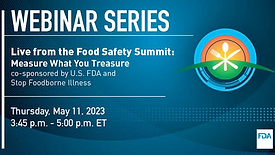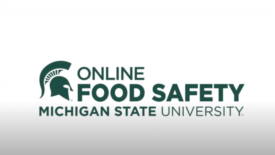Management
Cybersecurity and Food Defense: Establishing an ISAC for the Food and Agriculture Sector
With security threats on the rise, an Information Sharing and Analysis Center (ISAC) is needed for the food and agriculture sector
April 10, 2023
Recall Regulatory Partners' Efforts to Improve Integration Expands Nationwide
The 2022 Recall Integration Partnership Project expanded upon critical state and federal partnerships to improve response capabilities during recall events
April 7, 2023
Current States of Food Safety Culture and FSMSs in Food Establishments
In what ways is your brand either superior to or deficient from the behaviors revealed by your colleagues?

April 5, 2023
BIZTRACKS
Interactive “Food Safety Ninja” Website Launched by Local Health Department
March 27, 2023
BIZTRACKS
MSU Food Safety Culture Workshop Featuring Frank Yiannas, Bill Marler
March 24, 2023
Never miss the latest news and trends driving the food safety industry
eNewsletter | Website | eMagazine
JOIN TODAY!Copyright ©2025. All Rights Reserved BNP Media.
Design, CMS, Hosting & Web Development :: ePublishing










